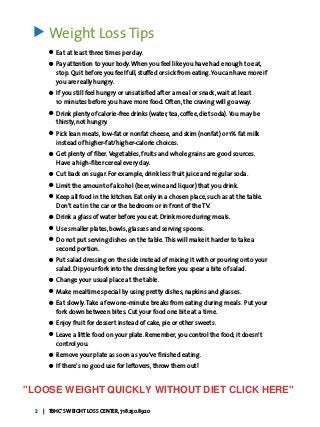
While there are many benefits to liquid diets, not all liquid diets are right for you. Before you start a liquid diet, consult your doctor. This type diet is not suitable for those who are recovering from injury or have any health issues. However, there are some exceptions to this rule. You may be recommended this diet if you're preparing for or managing a medical condition. While on a liquid diet, your health care provider will closely monitor you. A liquid diet is convenient but solid foods can still easily be consumed. To make it more diet-friendly, you can melt or blend meat and cheese.
Meal replacement shakes
Meal replacement smoothies are a convenient alternative to consuming a complete meal. These shakes must contain all the nutrients your body requires and be low in calories. Also, you want to avoid trans-fat and saturated fats. Healthy fats should have 10 to 15 grams per serving. Fiber is also important in meal replacement shakes. Fiber feeds your intestinal bacteria and moves waste out of your body. American's don't get the recommended daily intake of fiber.
Low in calories, meal replacement shakes usually contain 150-200 calories. However, these shakes may not be suitable for everyone. Ideally, your shake should contain 3 grams of fiber with equal amounts protein and carbohydrates. However, it is important to remember that you should supplement the shake with other meals to ensure that you are getting the nutrients your body needs.

Clear liquid diets
Clear liquid diets can help keep your stomach full and your digestive system healthy. These diets have several benefits. They provide key nutrients without the added calories and carbs found in many foods. These diets are also great for people who have difficulty swallowing. This diet can also be beneficial to those with certain conditions such as gastroesophageal and esophageal disorders.
Clear liquid diets may not be for everyone. Clear liquid diets can cause a person not to feel satisfied or eat as much as they would normally. In addition, a lack of fiber can lead to a decrease in bowel regularity. As such, it is important to talk to your primary care physician or a registered dietitian before starting a clear liquid diet.
Keto soup
A Keto diet can help you lose weight. These vegetables can be a great source of vitamins, fiber and other healthy plant foods. You can add many vegetables to your soup including turnips, celery root, rutabagas and cauliflower. These vegetables can be sauteed or steamed.
Keto allows you to increase your intakes of roasted tomatoes. Your body will release hormones to suppress your appetite, which can result in a reduction of 400 calories per day. This way, you can eat less and lose weight without feeling deprived. Additionally, your body will feel less compelled to eat than it should. Your body will then be able burn more fat than sugar if you eat less.

There are only a few ingredients required to prepare delicious Keto soup. Two cups of chicken broth is required, along with 1 cup of yellow squash cut into 1-inch pieces, 4 cups of chopped swiss-chard, two tablespoons of red vinegar, and 2 cups of sliced yellow zucchini. Add salt and pepper to your liking. After the soup has been simmered for about half an hour, add four slices of bacon.
FAQ
Why lose weight before you reach 40 years old?
Senior citizens over 40 need to maintain their health, fitness and well-being. It is important to stay fit throughout your life. This means regular exercise and eating healthy, as well as not smoking and moderate alcohol.
It is important to recognize that our bodies change as we age. Our bones get weaker and our muscles become smaller. By taking care of our bodies, we can slow the aging process.
Staying healthy and fit throughout your life is a great way to keep yourself young. These include:
-
Better sleep
-
Better mood
-
Increased energy levels
-
Lower chance of developing cancer
-
A longer life
-
More independence
-
Better sex
-
Improved memory
-
Improved concentration
-
Greater circulation
-
Stronger immune system
-
Fewer aches and pains
Can I eat fruits during intermittent fasting?
Fruits are great for your health. They are rich sources of vitamins, minerals. Fiber, antioxidants, as well other nutrients. However, they do contain sugar which can cause blood glucose levels spike. This can lead to insulin resistance, weight gain, and even diabetes. If you want to lose weight while following an IF diet, then make sure you choose low glycemic index fruits such as apples, pears, berries, melons, oranges, peaches, nectarines, plums, apricots, cherries, and kiwi.
What foods can I eat to lose weight quicker?
You can lose weight more quickly by eating fewer calories. This can be done in two ways:
-
Reduce the calories you eat each day.
-
You can burn more calories through exercise.
Reducing the number of calories you eat is easier said than done. We are constantly being bombarded by calorie-dense fast food options every where we go. Here's a list that will help you lose weight.
-
Beans are rich in fiber and protein. They have very little fat making them a great option for dieters trying to reduce their caloric intake.
-
Oatmeal is low in calories but high in nutrients like magnesium and potassium. Plus, it contains less sugar than other cereals.
-
Eggs are full of cholesterol and protein. Eating eggs at least twice a week can increase your metabolism, which helps you burn more calories.
-
Whole grain bread has been shown to reduce hunger pangs so that you may feel fuller longer.
-
Dark chocolate is full of antioxidants. Flavonoids have been linked to lower blood sugar and improved heart health.
-
Cottage cheese is high in calcium, which helps to build strong bones. It is also rich in vitamin D, which increases immunity.
-
Salmon is packed with omega-3 fatty acids, which promote brain development and improve cardiovascular function.
-
Green tea contains a lot of catechins. These are compounds that can fight cancer and improve metabolism.
-
Broccoli is rich in folic Acid, which lowers homocysteine blood levels. Homocysteine levels that are high have been linked to increased risks of heart disease and stroke.
-
Yogurt is an excellent way to include probiotics in your diet without adding sugars. Probiotics are vital for good digestive health.
-
Berries are delicious and nutritious snacks. Blueberries, strawberries, blackberries, raspberries, and cranberries are all excellent sources of vitamins and minerals.
-
Avocados are full of healthy fats. Half an avocado is only 80 calories, but it contains plenty of fiber and potassium.
-
Nuts are a tasty snack option that also happens to be a great source of protein. Almonds, cashews, hazelnuts, pecans, walnuts, and pistachios are all great choices.
-
Sweet potatoes are another starchy crop that is rich in beta carotene. This makes your skin glow. The orange variety is particularly beneficial because they contain higher amounts of beta carotene than regular sweet potatoes.
Statistics
- A 12-week study in 20 women with obesity found that walking for 50–70 minutes 3 times per week reduced body fat and waist circumference by an average of 1.5% and 1.1 inches (2.8 cm), respectively (healthline.com)
- Another study found that 24 weeks of weight training led to a 9% increase in metabolic rate among men, which equated to burning approximately 140 more calories per day. (healthline.com)
- Among women, the increase in metabolic rate was nearly 4%, or 50 more calories per day (14Trusted Source (healthline.com)
- According to Harvard Health, it's estimated that a 155-pound (70-kg) person burns around 167 calories per 30 minutes of walking at a moderate pace of 4 mph (6.4 km/h) (5). (healthline.com)
External Links
How To
How to Intermittent Fasting
Intermittent fasting, a type of dieting that allows you to only eat one time per week, generally Monday through Friday. The goal is to decrease your overall calories and still get adequate nutrition. This is believed to help you burn more fat than if your meals were regular throughout the week.
The most common form of IF involves restricting calories only on certain days of the week. This would be a way to skip breakfast and eat whatever you want throughout the day. It is possible to choose to have three smaller meals each day, rather than two large.
You can choose from many different types of intermittent fasting such as alternate day fasting (alternative day fasting), 5/2 fasts (8/4 fasts), 16/8 fasts, and so on. Each form of intermittent fasting comes with its own pros and cons. Alternate day fasting is the easiest way to start out because you don't have to make any major changes to your lifestyle. Some people may find it difficult to adhere to such a strict schedule, so they might try other methods.
Alternate-day fasting is a good option if you are looking to begin an intermittent fasting program. This will allow to slowly transition to more extreme fasting regimens without drastically changing your lifestyle.